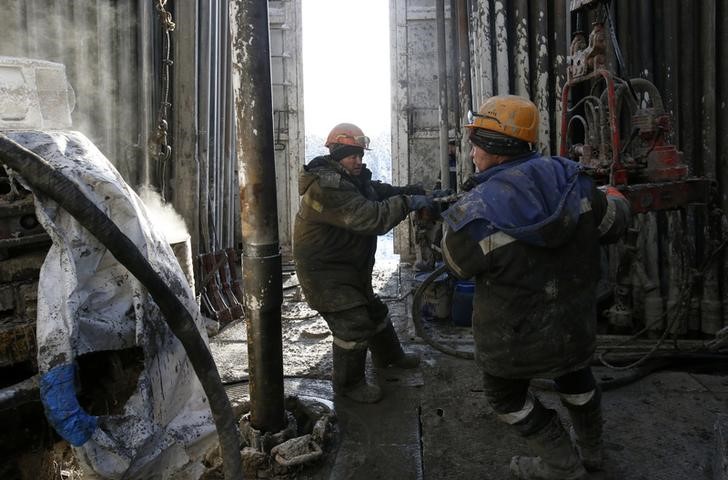Investing.com -- Oil prices edged lower Tuesday, handing back some of the previous session’s hefty gains as traders digest the possibility of a wider impact from the conflict between Israel and the Palestinian Islamist group Hamas.
By 09:25 ET (13.25 GMT), the U.S. crude futures traded 0.4% lower at $86.08 a barrel, while the Brent contract dropped 0.3% to $87.86.
Will Iranian supply be impacted by conflict?
Both benchmark contracts surged more than 4% Monday on concerns the war between Hamas and Israel, which exploded into deadly violence over the weekend, will result in other countries in the oil-rich region being dragged into the conflict.
Iran, in particular, has always voiced its support for Hamas, and questions are being asked over the extent of its assistance.
"There is still plenty of uncertainty across markets following the attacks in Israel over the weekend," said ING analysts, in a note.
"If reports of Iran's involvement turn out to be true, this would provide another boost to prices, as we would expect to see the U.S. enforcing oil sanctions against Iran more strictly. That would further tighten an already tight market."
Since late 2022, Washington has turned a blind eye to surging Iranian oil exports, bypassing American sanctions. The priority in Washington was an informal détente with Tehran so as to allow the world more in the advent of the OPEC cuts.
As a result, Iranian oil output is estimated to have surged nearly 700,000 barrels a day this year – the second-largest source of incremental supply in 2023, behind only US shale oil.
OPEC+ says cuts will continue
The market also received support on Monday after Saudi Energy Minister Abdulaziz bin Salman said production cuts by the global group of oil producers known as OPEC+ will continue.
The Saudis and Russians, who jointly lead the OPEC+, are withholding a daily supply of 1.3 million barrels between them, while the rest of the 23-nation alliance is contributing to a squeeze of another 2 million barrels or more.
“I honestly believe that the best thing I could say is that the cohesion of OPEC+ should not be challenged,” Abdulaziz said on the sidelines of a climate conference in Riyadh. “We’ve been through the worst, I don’t think we will have to go through any terrible situation at all,”
“Yes, we may be delayed with a decision on what to do, but I would not forfeit the precautionary approach, even if it goes beyond a month or two, or three or four months, or five months,” he added.
IMF downgrades 2024 growth forecast
That said, concerns about slowing global growth continue, especially with central banks continuing to clamp down on inflation.
The International Monetary Fund cut its global growth forecast for 2024 in its latest World Economic Outlook, seeing real gross domestic product growth of 2.9%, down from 3.0% seen at its prior update in July.
There are a number of Fed officials scheduled to speak later Tuesday, while traders will also be looking out for the minutes from the central bank's September gathering on Wednesday, while all-important consumer price figures are set to be published on Thursday.
(Barani Krishnan contributed to this article.)
